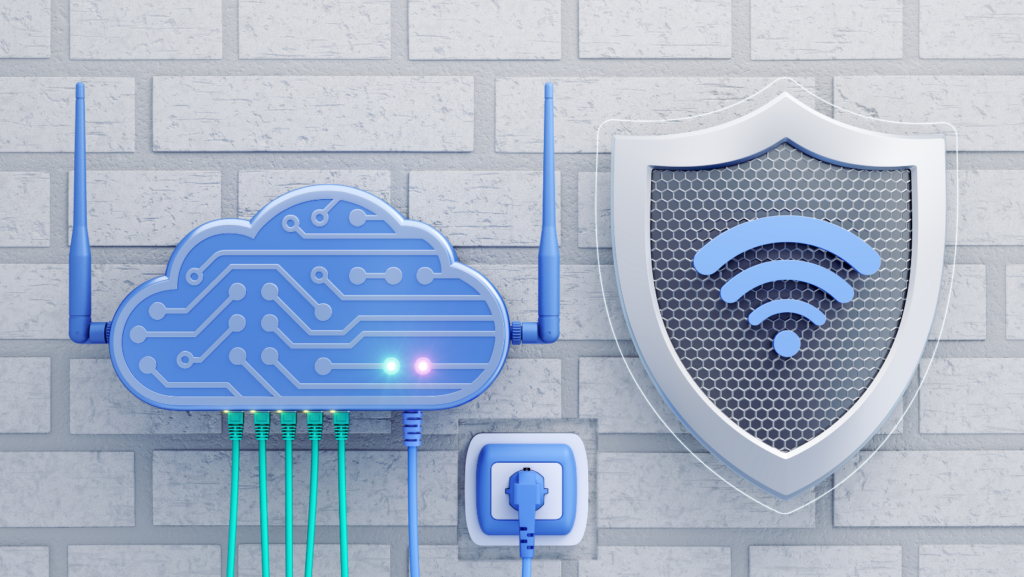In today’s hyper-connected world, having reliable, high-speed internet isn’t just a luxury—it’s a necessity. Especially for small businesses, where every resource counts, choosing the right WiFi solution can make or break daily operations.
From customer service to inventory management, every aspect of a small business can benefit from a robust WiFi connection. But with the myriad of options available, how does one decide which solution is the best fit?
This article dives into the world of small business WiFi solutions, exploring the benefits, challenges, and key factors to consider. Whether you’re a budding entrepreneur or a seasoned business owner, you’ll find valuable insights to help you make an informed decision.
Small Business WiFi Solutions
 In this section, we delve deep into the relevance and factors influencing the choice of small business WiFi solutions.
In this section, we delve deep into the relevance and factors influencing the choice of small business WiFi solutions.
For a small business, WiFi isn’t just a convenience, it’s a critical component of everyday operations. A stable and secure WiFi connection can pave the way for heightened productivity, enhanced customer service, and streamlined inventory management. For instance, a retail store can use WiFi to keep track of inventory in real-time, while a cafe can attract more customers with the offer of free WiFi.
Key Features to Look for in a WiFi Solution
Identifying apt small business WiFi solutions hinges on recognizing certain key features. A robust security system, for example, safeguards sensitive business and client information. Speed and reliability, essential for minimizing downtime, contribute significantly to productivity. Additionally, scalability allows for network expansion as the business grows. Notably, a feature often overlooked is ease of management, for which cloud-based controls are advantageous. These cloud-based controls allow for remote management of network settings, even from a mobile device. Furthermore, when choosing a solution, a business should also consider the solution’s ability to handle multiple connected devices, thereby ensuring a smooth and consistent experience for both employees and customers.
Fulfilling these criteria, certain WiFi solutions stand out, such as the Cisco Meraki, Ubiquiti Networks Unifi, and D-Link’s offerings. Yet, the choice would invariably depend upon the unique needs and budget constraints of a small business.
Top WiFi Solutions for Small Businesses
 Identifying the most effective, efficient, and reliable WiFi solutions promotes sound performance in small businesses. This section dives into the advantages of top-tier systems and outlines a comparison method for different WiFi options.
Identifying the most effective, efficient, and reliable WiFi solutions promotes sound performance in small businesses. This section dives into the advantages of top-tier systems and outlines a comparison method for different WiFi options.
Leading WiFi solutions, namely, Cisco Meraki, Ubiquiti Networks Unifi, and D-Link, bolster small business operations. Each brings distinctive strengths to the table.
Cisco Meraki, designed with cloud management in focus, offers simple setup, management controls, and superior scalability. Businesses can grow and adapt seamlessly, all while keeping network management uncomplicated.
Ubiquiti Networks Unifi, on the other hand, shines in its expansive ecosystem. This system interlinks various devices- routers, access points, security gates- under a centralized control system. This synergy of networked devices simplifies inventory management and enhances customer service.
D-Link, while somewhat less known, promotes superior connectivity and security at competitive price points. With robust control features, D-Link holds firm as an effective and economic choice for small companies operating under restricted budgets.
Setting Up Your Small Business WiFi
 Executing a successful WiFi set-up involves diligent planning and accurate implementation. Drawing from the previous discussion on ideal WiFi solutions, let’s delve into some vital components to streamline your installation and ongoing management.
Executing a successful WiFi set-up involves diligent planning and accurate implementation. Drawing from the previous discussion on ideal WiFi solutions, let’s delve into some vital components to streamline your installation and ongoing management.
Choosing the right location for your router can significantly improve overall WiFi performance. Putting it in a central, unobstructed spot encourages uniform signal spread. Insulating remote corners with WiFi extenders ensures there’s no area left without coverage. Ethernet connections can serve for devices that demand high-speed, consistent connectivity, such as POS systems. These practices amplify your WiFi signal, enhancing the productivity of your business.
Ensure, too, that the chosen WiFi solution fits the specificities of your physical location. High-speed internet performance depends not only on routers and extenders’ placements but also on the building’s materials. Walls made of concrete or metal can hinder signal spread. Mesh networking options, like Ubiquiti Networks Unifi and Cisco Meraki, can adapt to these situations, turning potential obstacles into opportunities for efficient connectivity.

